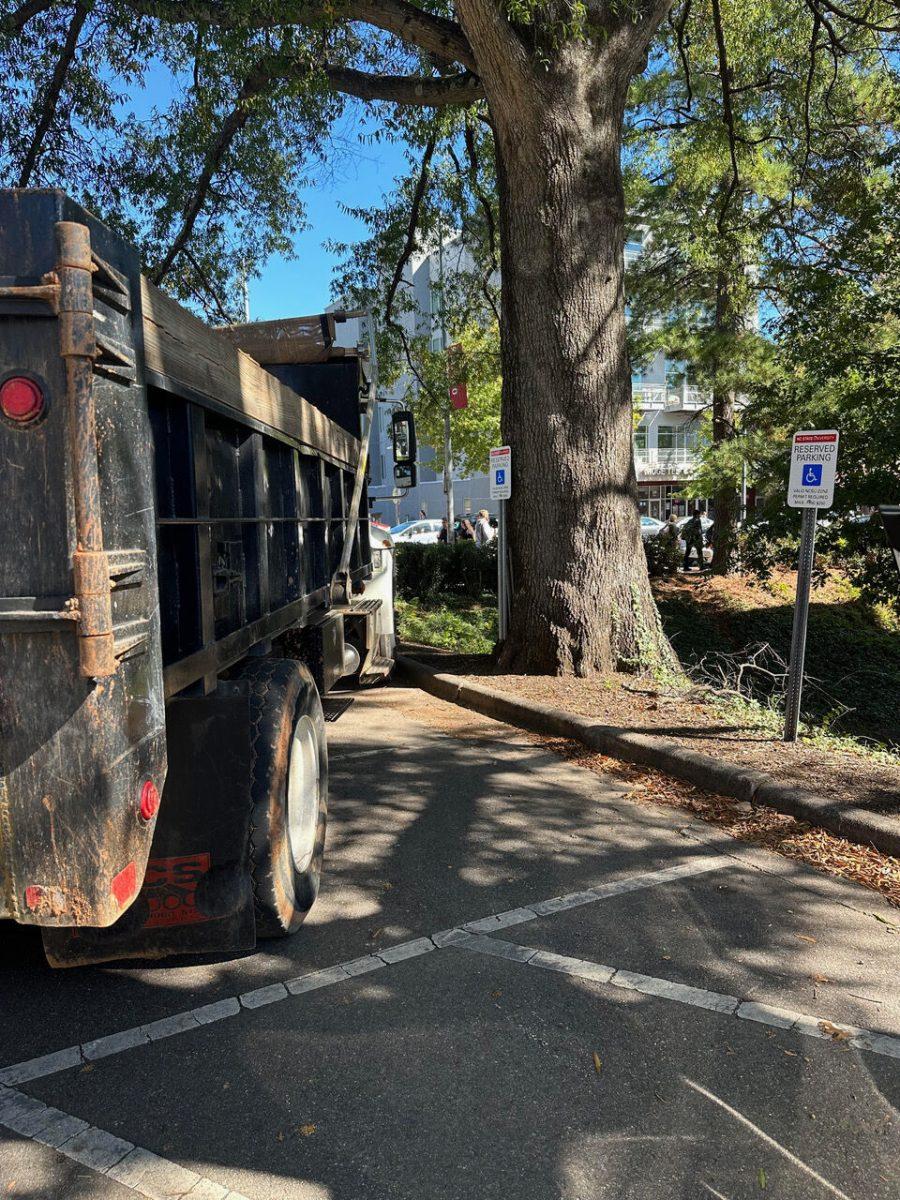Marissa Fahy, a fourth-year studying English, said last spring she was asked to move her car from her accessible parking spot for construction workers to use. Fahy said a construction vehicle then parked there for over 40 minutes, rendering her unable to move her car back before her next class.
Fahy said this is just one example of difficulty she has experienced regarding finding accessible parking at NC State.
Accessible parking spaces are spaces marked for use by people with disabilities. These spaces are meant to ensure ease of access. However, for students like Angel Morales, a first-year studying graphic and experience design, finding accessible parking has been difficult, as these spaces have been further away than normal.
“There have been some times when I tried to go where I thought there would always be a parking spot, close to where my classes would be, and then I’d find all the construction equipment there,” Morales said. “And I wasn’t able to park there, and I had to find other accommodations, or I had to drive back around, making me late to class, even though I got there early enough.”
Fahy said she’s had similar experiences, and her commute has grown longer because of it.
“I was having to come to school 20 minutes early so I could find a handicapped parking spot somewhere, which defeats the whole purpose of it because it’s to give me the shortest route possible to the building,” Fahy said. “And I was having to park two buildings away and walk over, which is feasible for me on some days, but there’s some people who that’s never feasible for them.”
Demar Bonnemere, communications manager for NC State Transportation, said with construction occurring more often at NC State, construction workers may require these parking spaces.
“You know, sometimes there is work being done in areas where there may be some accessible spaces, and we have to take them offline,” Bonnemere said. “But we do find, in essence, we replace those spaces. So if we have to take two accessible spaces offline, we will find an area to put two more that have a comparable accessibility to the buildings.”
Some accessible parking spaces are taken up by objects other than cars, such as trash bins. Fahy said she has seen these bins placed in accessible parking spaces for long periods of time, and NC State Transportation may not realize this.
“You just get the idea that they haven’t been in the Carmichael parking lot to see the trash bins that have been taking up the closest handicap parking spot to the building for over four weeks,” Fahy said.
If spaces are not taken offline, construction vehicles can use a parking pass, although Fahy said in certain instances she has seen construction vehicles not use these.
“I pulled into the Carmichael parking lot, and two cars next to me was a giant loading van parked in a handicapped spot with nothing saying that they could do so,” said Fahy.
Accessible parking spaces are larger than traditional parking spaces in order to safely allow room to retrieve mobility equipment. Morales said parking in spaces not designed to accommodate people with disabilities can be dangerous.
Fahy said there are alternatives to using accessible parking spaces for construction vehicles.
“All of what I saw is that there were a lot of non-handicap parking spots that were put for the use of the construction workers here in this particular building, which is the Caldwell area,” Fahy said. “And they were using those, but they were spilling into the handicap parking.”
Morales said construction workers and the administration should have been more thoughtful and chosen other spots for workers, even if it was inconvenient.
“Inconvenient and painful for one person as opposed to inconvenient for another person are two different things,” Morales said.
Fahy said she wants to see more accountability from the administration.
“It feels like they’re treating handicapped people as unimportant or second-class citizens,” Fahy said. “Why aren’t [construction workers] being suitably punished for breaking the rules? Is it because NCSU has told them they can park there? … They should also be held accountable for the mistakes that they’re making that are being ignored.”













